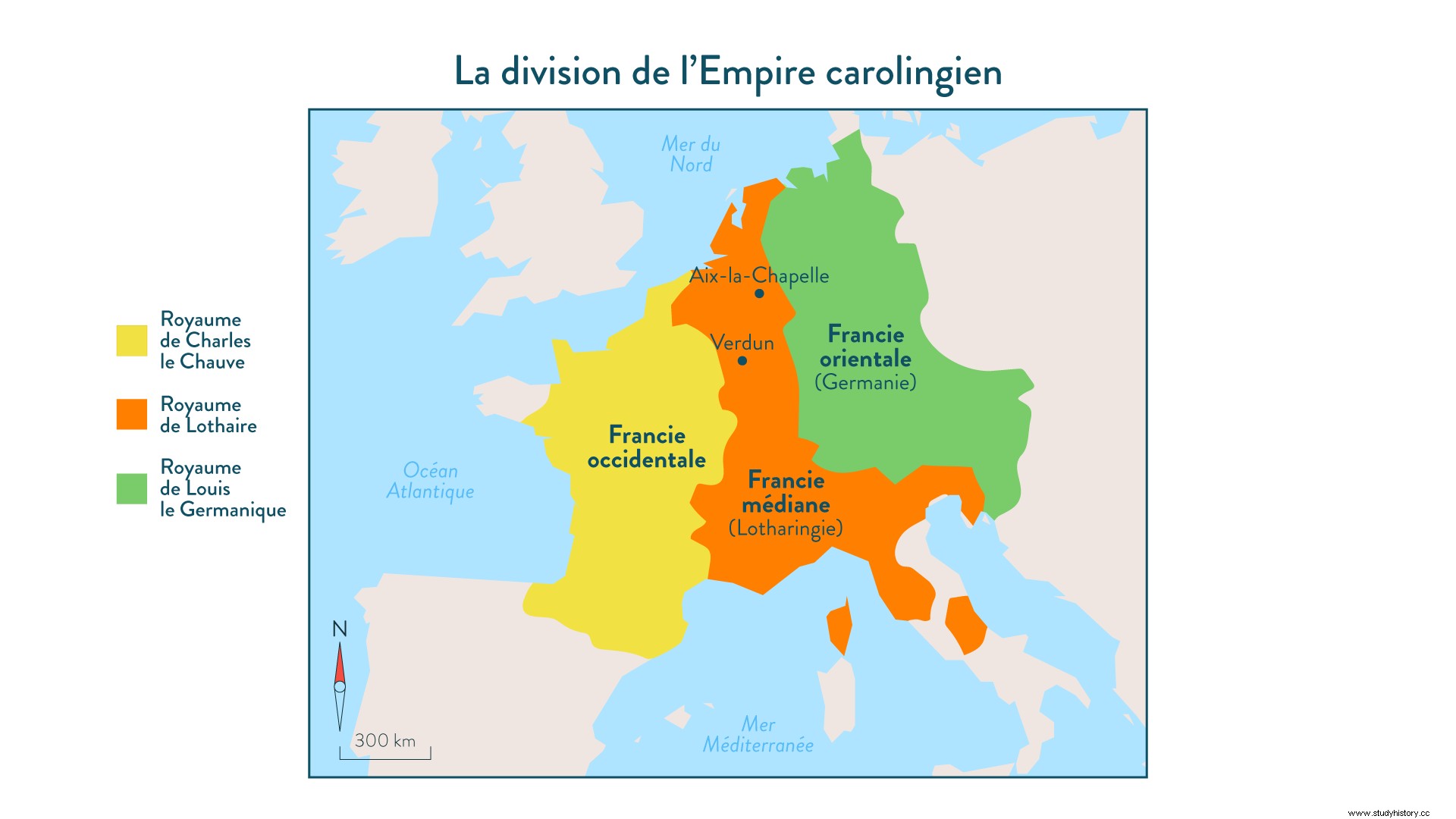Charlemagne built and stretched an Empire much like the Roman Empire. But, despite his various marriages, only one of his sons survived him:Louis the Pious. The latter therefore inherited the lands of his father, which remained unified. But Louis the Pious had four sons:his eldest son Lothair, Pepin (who died in 838), Charles the Bald, and finally, Louis the Germanic. Also, to settle his succession, Louis the Pious had a capitulary (legislative document) written in Aix-la-Chapelle in 817:the Ordinatio imperii . There are two conceptions for succession, either the Germanic vision which is to divide his empire equally with his male heirs, or the ecclesiastical vision which advocates the empire as being indivisible. Louis the Pious tries to find a happy medium by appointing the elder Lothair co-emperor, while the younger brothers are subject to the authority of the elder. This angers them. In 839, a sharing agreement was found but the younger brothers remained subordinate to the elder and had a more limited territory. On June 29, 840, the death of Louis the Pious opened three years of war of succession.
843

Characters
Charles the Bald
Louis the German
Louis the Pious
Lothair
Procedure
On the death of his father, Lothair relies on the Ordinatio Imperii to claim the throne and the entire empire, disregarding the agreement of 839. Conflict breaks out between the three brothers; from then on, each raises an army. Louis is established in Bavaria, but Charles, who is in Aquitaine, must constantly push back Pepin's nephews who have been removed from the throne. In addition, Lothaire, largely favored, has considerable means. No doubt on the wise advice of his mother Judith, Charles attempts a rapprochement with Louis to unite against Lothaire. The bloody confrontation that took place from June 8, 841 in Fontenoy-en-Puisaye turned into a disaster for Lothair. On the strength of their victory, Charles the Bald and Louis the German sealed an alliance on February 14, 842, the Oath of Strasbourg, committing them not to deal separately with their elder brother. Following this oath, they march to Aachen to depose their brother who fled with the treasure. They meet in Mâcon to find an agreement in June 842, which will be signed in August 843. The Treaty of Verdun thus separates the territory of Louis the Pious into three equal parts, both from a territorial and economic point of view. Lothair the eldest obtains middle Francia, in the center, Charles the Bald western Francia, and finally Louis the Germanic inherits the more eastern part.
Consequences
This treaty, which shares the immense empire built by Charlemagne, considerably weakens the power of the emperor who must divide his kingdom with the other heirs. Lothaire dying fairly quickly, the middle Francia disappears in favor of his two brothers, who gradually nibble away at the shares of their nephews. Future dynasties will now take care to apply the Salic law (the inheritance goes to the eldest son), so as not to dissolve the empire anymore...
